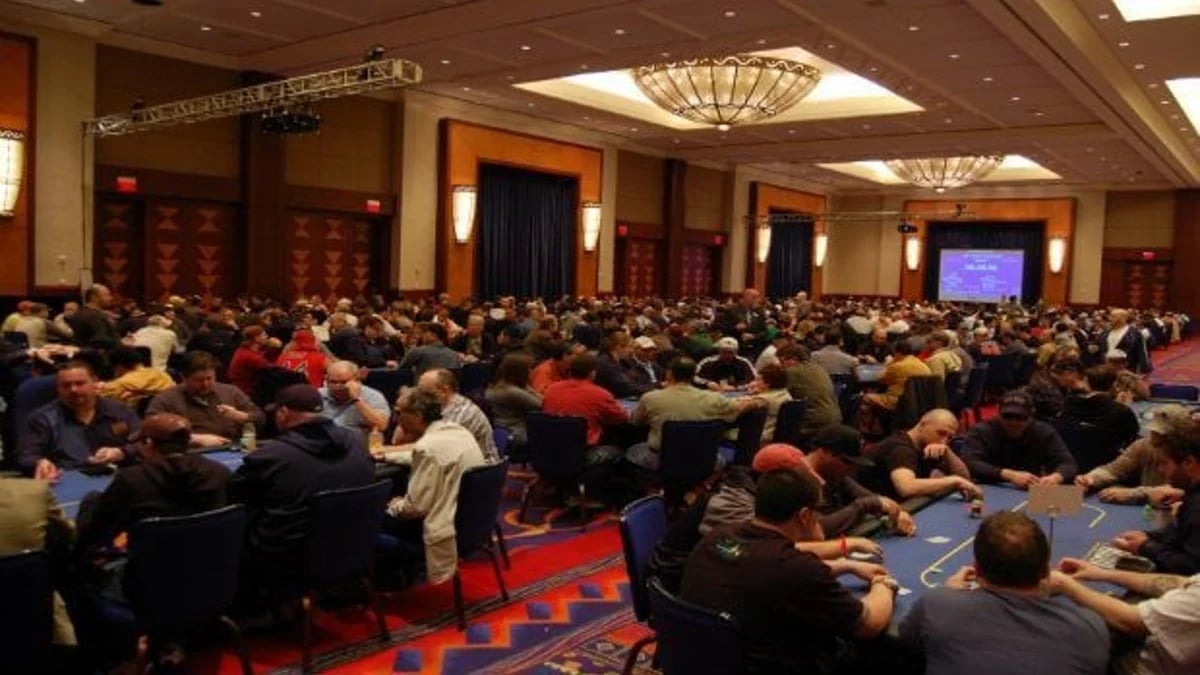Poker Tournaments: Winning Long-Term in the Tournament Circuit

Types of Tournaments
First, it is important to distinguish poker tournaments into two main categories, which are MTT’s or multi-table tournaments and SNG’s, which are 'Sit and Go' tournaments. The basic difference between the two is that MTT’s have a specific start time regardless if they allow late registration, whilst SNG’s only start once a specific number of people have signed up for the tournament.
You can also distinguish tournaments into two other categories, prize tournaments and satellites. In prize tournaments, the prize pool is collectively divided to the top finishes of the tournaments, whilst satellite tournaments usually award only a small percent of the winners with tickets to a larger poker tournament or a complete poker package. This usually includes flights, accommodation, and entry fees.
In most tournaments, even though the structure varies, you should keep in mind that the pay-out bubble is usually close to 11%. That means in a multi-table tournament with 10 players at each table, one player should reach the money. Another important fact to remember is that 50% of the prize pool money is awarded to the top 1%-3% of the competition. If your aiming to cash big, that’s the percentile you should try to find yourself in.
Tournaments vs Cash Games
There is a lot of controversy about whether or not the top tournament players are actually any good in cash games. This is a matter that cannot be solved here. A lot of the top cash game pros who are not getting as much recognition as the tournament players believe, and regularly challenge tournament players to join in their high stakes cash games to prove their point. To some extent they are correct. Most tournaments are played in a short stacked / medium stacked fashion for efficiency reasons. On the other hand, you can get cash games as deep as 2000 big blinds stack. In theory, the deeper you are in a poker game the more freedom you have to expand your plays and find yourself in more complicated scenarios, which players in a tournament may never face.
Risk vs Investment
If a sample of 100 poker players, who regularly play in the tournament circuit, was collected, one would notice that the mean is not breaking even, but at a loss. The reason for this is that all tournaments, regardless of structure, charge an entry fee of 5%-20%. This fee is important for the casino to cover costs and make a profit when running the tournaments. In this regard, tournament poker is similar to Forex trading, which starts each wager with a negative spread of 5-10 pips. To conclude, being an average tournament player just won't cut it.
You should always aim to play the tournaments with the lowest entry fee possible to increase your return on investment. Also, opt to play tournaments where you believe the competition is rather soft. Don’t be afraid to shy away if you notice some good players on the felt.
Same Type of Tournaments vs Mixing it Up
It is advisable that you keep a diary of the tournaments you play, including the buy-in fee and if you cashed or not. That way, after you have collected a large enough sample, you can choose which tournaments are more profitable for you and which ones you should avoid playing.
Don’t be the Bubble Boy
A very common mistake many beginners make when playing small buy-in tournaments, is that they only play for the win or the final table. This can prove to be a big mistake, especially when you are close to the bubble. If you aren't familiar with the term “bubble boy” let me explain: it’s the person who exits the tournaments last just before the cash-outs begin. Some people find themselves in this situation a lot. If you are one of these people, you should tighten up your game when it’s time to start cashing. Try not to take excessive risks, definitely avoid coin flips, and if you don’t have the stack to bully the table stop trying to steal people’s blinds.
Switching Gears
Most people have the same problem “switching gears” when transitioning from cash games to tournaments. Switching gears just refers to how you modify your behaviour on the table, whilst the tournament progresses. It has to do with how you adapt your VPIP (voluntarily put in pot) and PFR (pre-flop raise) percentiles during different stages of the tournament. Also, pay attention to your chip stack in relation to the table and tournament average. Just remember, that when you are comfortably above the chip average there is no need to risk chips you would otherwise consider risking in the situation that you had a short stack.










